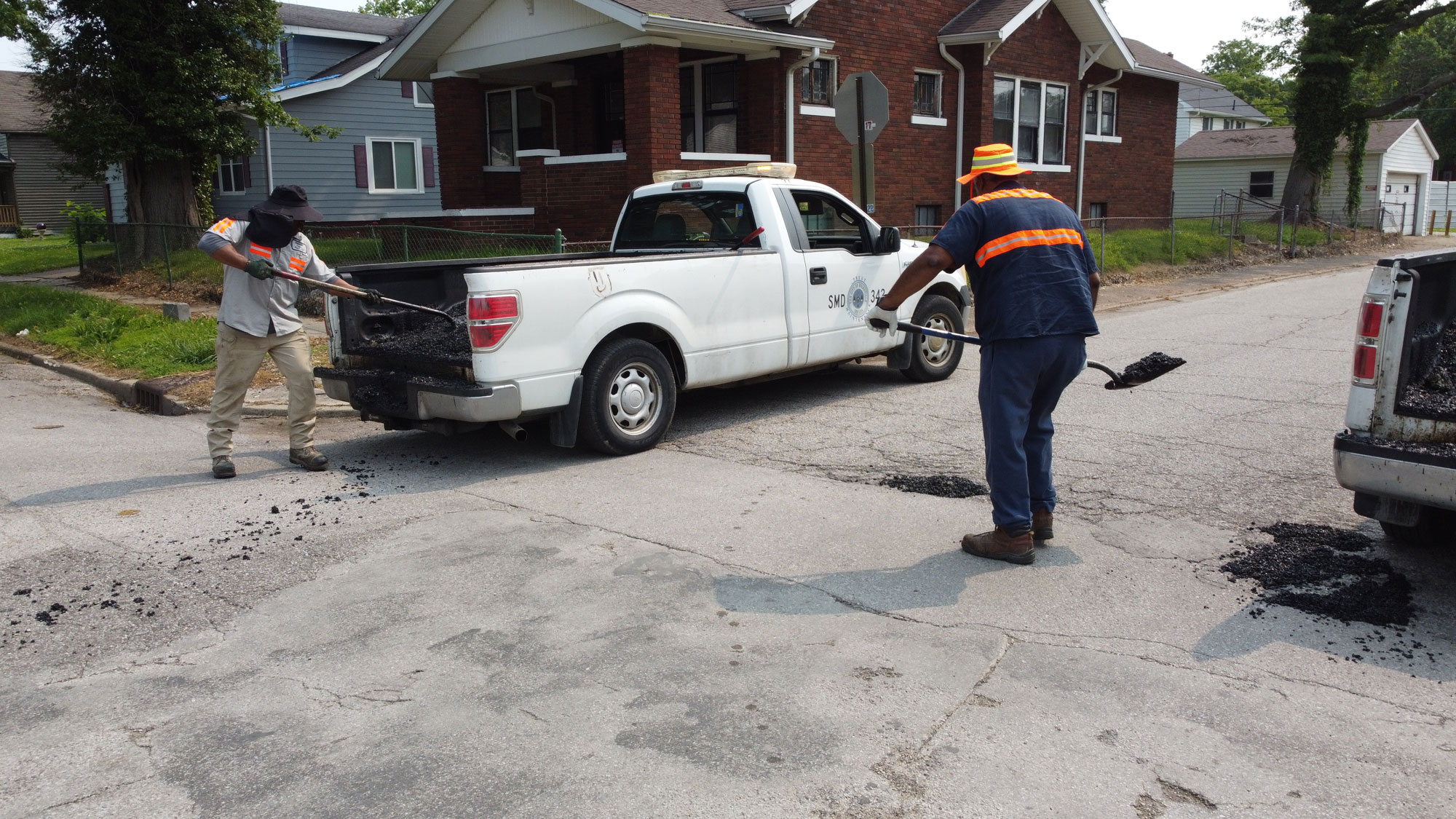Wheel Tax
Paving the Way: Fixing the Streets We All Use
 The City of Evansville will pursue a municipal wheel tax to provide a stable, dedicated source of funding for road and street improvements, responding to long-standing infrastructure challenges and one of the most frequent concerns raised by city residents.
The City of Evansville will pursue a municipal wheel tax to provide a stable, dedicated source of funding for road and street improvements, responding to long-standing infrastructure challenges and one of the most frequent concerns raised by city residents.
In 2026, Evansville is projected to lose millions of dollars in property tax revenue due to changes in state law (Senate Bill 1, no known as Senate Enrolled Act 1, or SEA1). During the same legislative session, Indiana passed House Enrolled Act 1461 (HEA 1461), requiring cities to adopt the Wheel and Excise Tax in order to qualify for Lane Mile Distribution Dollars - a new, guaranteed state funding stream for local roads.
Why a Wheel Tax, and Why Now?
We’ve all said it, and we hear it every day from Evansville residents: “Fix the roads.”
The truth is, we agree. Evansville’s roads are in rough shape, and our current funding can’t keep up. Right now, we have about $3 million each year for road repairs, plus $1.5 million in state Community Crossings grants. But it takes $12 million annually just to stop our streets from getting worse; if we wanted to get ahead, it would mean allocating $15-$20 million a year for several years to our roads.
That, coupled with the funding changes made by the state legislature, is why the City of Evansville is proposing a municipal wheel tax: a fair, dedicated way to fund the street improvements our community needs.
What Is a Wheel Tax?
A wheel tax is a small annual fee paid when you renew your vehicle registration through the Indiana BMV. It’s based on the type of vehicle and applies only to residents within city limits.
Drivers would pay:
- $15 per year for motorcycles
- $25 per year for cars, SUVs, and standard vehicles
- $35 per year for heavier trucks or trailers
That’s about $2-3 per month—less than the cost of one pothole-related car repair. And the result is estimated at $2.7 million in additional funds to repair Evansville roads.
Where Does the Money Go?
Every dollar stays right here in Evansville.
Funds from the wheel tax go directly into the City’s Road and Street Fund, which is legally restricted to capital improvements such as street resurfacing, sidewalk upgrades, and curb work. They cannot be used for salaries or unrelated city services.
It also positions us to unlock funding from the state, meaning every dollar could go 2-3 times farther.
Recently, Governor Mike Braun told a Conference of Mayors meeting in Elkhart, Indiana that ““Wheel taxes are going to be something you’re going to need to use, because if you don’t do that, it’s going to be hard for the state to partner up in places that need even more for their own roads.”
What Will Get Fixed First?
Planned road paving projects for 2026 include:
- Washington Ave., from Green River Rd. To Newburgh Rd.
- Division St., from Cullen Ave. to Fielding Ave.
- Cherry St., from Riverside Dr. to SE 4th St.
- Division St., from Wesselman Park to Stockwell Rd.
- Sycamore St., from NW 5th St. to NW 10th St.
- Sonntag Ave., from Maryland Ave. to Mt. Vernon Ave.
- Riverside Dr., from Ohio St. To Court St.
- Buchannon Rd., from St. Joseph Ave. to Mt. Auburn Rd.
- Vann Ave., from Pollack Ave., to Covert Ave.
- Read St., from Division St. to Columbia St.
- Franklin St., from Baker Ave. to Garvin St.
- Pfeiffer Rd., from Stringtown Rd. to Kentucky Ave.
- Kentucky Ave., from Pfeiffer Rd. to Christ Rd.
- Theatre Dr., from Green River Rd. to Old Boonville Highway
- Hirsch Rd., from Green River Rd. to Burkhardt Rd.
- Rosenberger Ave., from S. of Cox Ave. to the Lloyd Expressway
How Does Evansville Compare?
Evansville is currently one of the only major cities in Indiana without a wheel tax.
Cities like Fort Wayne, Bloomington, Lafayette, and dozens more already have one in place, using it to maintain and improve their local infrastructure.
This proposal brings us in line with the rest of the state, so we can stay competitive and eligible for critical funding opportunities.
Next Steps
The wheel tax proposal will be introduced to City Council in the coming weeks. If approved, it would go into effect in 2026 and apply during each resident’s BMV registration cycle.
Have Questions? Want to Learn More?
We’re committed to transparency and local accountability. Click below to access:






